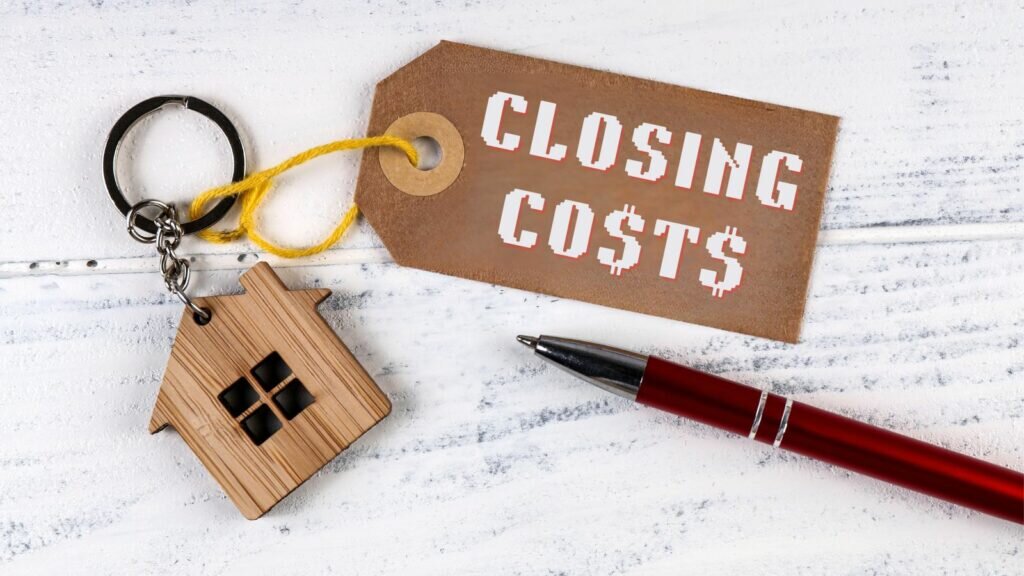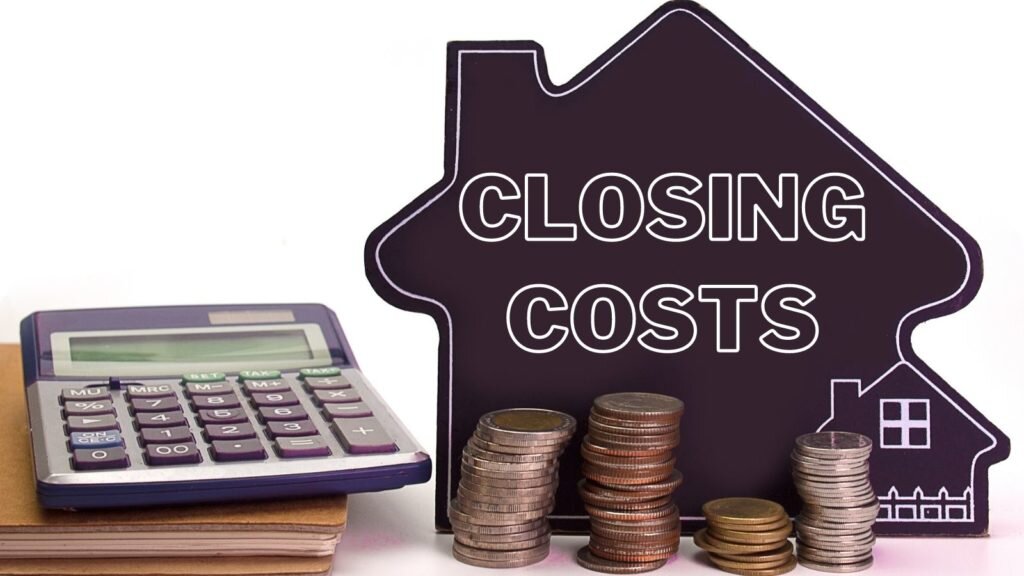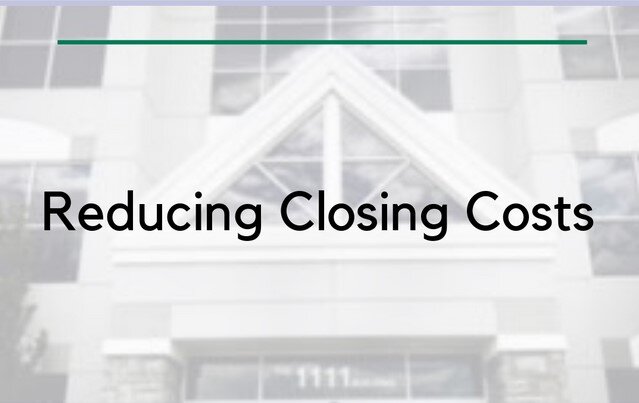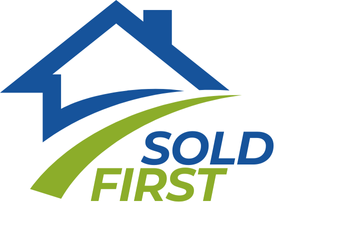Introduction
When you’re searching for “What are closing costs exactly?” you’re likely feeling a bit overwhelmed by the home-selling process. Maybe you’re considering selling your property, or perhaps you’ve already made the decision to sell. Either way, the fear of unexpected expenses is probably weighing on your mind. You’re asking yourself: “What are all these closing costs? How much will they actually be? And, will they eat into my profits?” It’s natural to be cautious about the costs that come with selling a home, especially if you’re hoping to walk away with as much cash as possible. You may have heard that there are hidden fees or charges that could reduce the amount of money you’ll actually see after the sale is done.
That’s why you’re here: You want to understand exactly what closing costs are and how much they can add up to when selling your home. This article will break down these costs in a simple, no-nonsense way, helping you understand what you’re truly up against. But most importantly, it will help you assess whether traditional sales or a cash sale might be more financially beneficial in your situation.
What Are Closing Costs in Real Estate?

When you’re ready to sell your home, one of the first things you’ll need to understand is what closing costs are in real estate. Simply put, closing costs are the fees you pay when your home sale is finalized. These costs can add up quickly, and they are typically paid at the end of the sale, which is known as “closing.” Understanding these fees is critical to calculating your net profit from the sale.
You may think that the only cost associated with selling a home is the agent’s commission, but that’s far from the truth. In fact, closing costs can include a wide range of fees, and they can vary significantly based on your location, the type of sale, and the price of your home. Closing costs typically include title insurance, repair costs, transfer taxes, and attorney fees, just to name a few.
Typical Closing Costs When Selling Your Home
Here are the most common closing costs that sellers can expect:
- Real Estate Agent Commission
This is usually one of the largest expenses, typically ranging between 5% to 6% of the final sale price. For example, if you sell your home for $300,000, you could end up paying $15,000 to $18,000 in commission fees. - Title Insurance
Title insurance protects the buyer in case there are any issues with the title of your home. In most cases, sellers are required to pay for title insurance, which typically costs about 0.5% to 1% of the sale price. - Repairs and Inspection Fees
If your buyer requests repairs after a home inspection, you may be responsible for paying for these repairs. Depending on the issues found, repair costs can vary widely. It’s not uncommon for sellers to pay anywhere from $500 to $5,000 in repairs. Learn more about home inspections at HGTV. - Transfer Taxes and Recording Fees
Many states charge a transfer tax on the sale of property, which can range from 0.1% to 2% of the sale price. Additionally, there are recording fees for filing the property transaction with the local government. These can add anywhere from $100 to $500. - Attorney Fees
In some states, it’s required to have an attorney review the sale. This can add up to $500 to $1,500, depending on the complexity of the sale.
How Closing Costs Affect Your Profit

It’s important to note that closing costs will directly affect the amount of money you’ll walk away with after selling your home. For example, if you sell your house for $300,000, and your closing costs are around 8%, that could add up to $24,000 in fees. When you subtract that from your sale price, you’ll see a much smaller profit than you might have anticipated.
So, understanding closing costs upfront can help you plan better for your financial outcome. And if you’re thinking about selling your home, you might also want to consider alternatives like selling your home for cash, which could save you from many of these costs.
For more information on reducing your selling costs, check out our comprehensive guide on What It REALLY Costs To Sell Your Home in Maryland?
Why Closing Costs Can Be A Burden
Many sellers are unaware of just how much closing costs can reduce their profits until it’s too late. If you’re facing a tight timeline or need to sell quickly, the last thing you want is to be hit with unexpected costs that chip away at your equity. For example, if you’re selling your house for $250,000, and your closing costs are 7% (around $17,500), you might only end up with $232,500 after all is said and done. This can be a significant amount, especially if you need those proceeds for another purchase or to cover moving expenses.
The Hidden Costs of Closing
Even if you plan for typical fees, unexpected issues can arise during the closing process. Some of the less visible costs include:

- Prepayment Penalties: If you have a mortgage and pay it off early, you may be hit with a prepayment penalty. This could range from $200 to $1,000.
- Home Warranty: Some buyers may request a home warranty to cover potential repairs after purchase. Sellers sometimes agree to pay for this, which can cost between $300 and $600.
- Concessions to the Buyer: In some cases, buyers may ask the seller to pay part of their closing costs. While this isn’t always the case, it’s something you should keep in mind. Sellers typically cover 2% to 3% of the buyer’s closing costs.
These additional hidden costs can add up quickly, making the final sale price much lower than what you anticipated. This can be a particularly discouraging situation for sellers who were expecting to pocket the entire sale price or use it for a down payment on another property.
Want to know how you can avoid many of these fees? Visit our guide on Will Selling Cost You Money in Pennsylvania? to learn more.
How to Minimize Closing Costs When Selling Your Home
If you’re already wondering how you can avoid some of these hefty closing costs, you’re in the right place. There are several ways to minimize what you pay in closing fees, some of which include:
- Sell As-Is
One way to avoid repair costs is to sell your home as-is. This means you won’t have to fix anything that might come up during the inspection. However, selling as-is may mean you get less money for your house because buyers will typically negotiate a lower price if they need to make repairs. - Work With a Cash Buyer
Selling your home to a cash buyer can significantly reduce your closing costs. Cash buyers often purchase properties as-is and don’t require a lengthy inspection process. Plus, you won’t need to pay agent commissions, title insurance, or repair costs. This can leave you with more money in your pocket. - Negotiate with Your Buyer
In some cases, sellers may be able to negotiate who will pay for certain costs. For instance, some sellers negotiate with the buyer to cover the cost of title insurance or other closing fees. However, this might not always be possible, especially in a competitive market. - Shop Around for Title Insurance and Closing Services
If you’re responsible for title insurance or closing services, it pays to shop around. Prices can vary, and finding a better deal on these services could save you hundreds or even thousands of dollars.
For more detailed strategies on minimizing costs, check out our post on How Much Does Holding A Property Cost in New York to learn ways to save even more.
How Much Are Closing Costs on Average?

The amount you’ll pay in closing costs can vary depending on several factors, including the sale price of your home, the state in which you live, and the specific fees involved in your transaction. On average, closing costs for home sellers range from 2% to 5% of the sale price. In some cases, they can be higher, particularly if you have a higher-value property or if you’re selling in a state with high taxes.
For example:
- Selling a $400,000 home could cost you anywhere from $8,000 to $20,000 in closing fees.
- If you sell a $200,000 home, you might pay between $4,000 and $10,000 in closing costs.
As you can see, the percentage might seem small, but it adds up quickly, especially when you’re hoping to make a large profit from your sale.
Need help estimating your potential closing costs? Visit How Much Will Listing Your House Really Cost in Virginia? to get an accurate estimate based on your situation.
How Do Closing Costs Vary By State?
One thing to keep in mind when selling your home is that closing costs can vary significantly by state. Different states have different tax rates, rules, and even customs when it comes to selling real estate. Some states have high transfer taxes, while others require additional fees or even specific closing procedures that could add to the cost.
For instance, in states like California, you may encounter higher transfer taxes, while in New York, property taxes can be particularly steep. Other states, like Texas, don’t have a state income tax, but they may have local taxes or fees associated with real estate transactions.
Understanding these state-specific costs is critical for planning your sale. A motivated seller needs to consider how state rules might impact the final amount they receive from their sale. It’s a good idea to research your state’s closing cost norms before listing your property to avoid surprises.
By selling your house for cash, you may be able to bypass many of these fees. Cash buyers often purchase homes as-is and deal directly with the paperwork, reducing your exposure to costly state-specific fees. Knowing what to expect can help you prepare more effectively for your sale and make sure you don’t walk away with less than you anticipated.
The Role of Negotiations in Reducing Closing Costs

Another way you can minimize closing costs when selling your home is through negotiation. Many sellers are unaware that they can negotiate certain closing costs with the buyer or with service providers. Negotiation could save you significant amounts of money on title insurance, agent commissions, and even inspection costs.
In some cases, buyers may be willing to cover part of your closing costs in exchange for a lower sale price, or they may agree to split certain fees. Sellers can also negotiate with their real estate agents to reduce commission fees, though this might not always be possible depending on the market and the agent’s policies.
Learn more about negotiating real estate commissions to see if this strategy works for you.
Additionally, some service providers, such as title companies or inspectors, may be open to negotiating fees. It’s important to shop around for these services and ask for quotes from multiple companies. By comparing prices, you may be able to secure a better deal on closing-related services, saving you hundreds or even thousands of dollars.
If you’re selling your home for cash, negotiation is often simpler. Cash buyers generally expect fewer costs and fees, which makes it easier to streamline the closing process and avoid unnecessary charges.
Can You Avoid Closing Costs by Selling for Cash?
A major concern for many sellers is how to minimize the impact of closing costs. One option to consider is selling your home for cash. Selling a house for cash can allow you to avoid many of the typical costs associated with a traditional sale. In fact, it might be the most cost-effective way to sell, especially for sellers looking to save time and money.
Cash buyers typically purchase homes as-is, meaning you don’t have to worry about making repairs or paying for inspections. This alone can save you thousands of dollars. Additionally, since you don’t need to use a real estate agent, you can avoid paying the 5-6% agent commission that is usually due at closing.
Moreover, cash sales often don’t require title insurance, as many cash buyers are willing to take on the risk. Without the need for inspections, appraisals, and loan processing fees, the entire closing process is usually faster and more straightforward. In some cases, the seller’s only costs may be minimal, such as transfer taxes or small administrative fees.
If you’re looking for the simplest way to sell your home without the hassle of dealing with closing costs, a cash sale might be your best option. By bypassing traditional costs, you could walk away with a larger portion of your sale price, helping you move forward without the financial burden.
What Happens If Closing Costs Are Too High?

What happens if the closing costs associated with selling your home are too high? Unfortunately, high closing costs can reduce your profits, and in some cases, you may even find yourself owing money at closing. If your home doesn’t sell for enough to cover the costs, you may be required to pay the difference out of pocket.
High closing costs can occur for several reasons, such as unexpectedly high repairs, a low sale price, or additional fees that weren’t anticipated. If you find yourself in this situation, it’s essential to evaluate your options. You may be able to negotiate with the buyer to cover some of these costs, or consider a lower agent commission if you’re working with a realtor.
Read more on how to avoid paying for closing costs to find other tips to help you minimize your expenses.
If these strategies don’t help, you may want to reconsider the terms of your sale. In some cases, sellers may decide to back out of a deal or reduce their asking price to ensure they can walk away with a net gain.
One of the best ways to avoid the risk of paying out of pocket for closing costs is to sell to a cash buyer. Cash buyers typically offer a straightforward sale process with minimal fees and often cover many of the costs that traditional buyers might impose. This can prevent the risk of negative equity and ensure that you don’t end up in a financially difficult position at closing.
Learn more about avoiding these issues by reading Costs of Listing With An Agent.
Conclusion: Should You Sell Your Home for Cash?
After reviewing all the various costs associated with selling your home, it’s clear that closing costs can add up quickly and significantly reduce your net profit. From agent commissions to repair costs, transfer taxes, and title insurance, it’s easy to see how these fees can eat into what you were hoping to make.
However, there is an alternative that can help you avoid many of these costs: selling your home for cash to Sold First. By working with a cash buyer like Sold First, you can sell your home as-is, avoid repair costs, skip the agent commissions, and potentially eliminate other closing fees. In addition, you’ll often have a faster closing timeline, allowing you to access your funds more quickly.
If you want to bypass the stress of closing costs altogether, selling your home for cash could be the right choice for you. Whether you’re facing foreclosure, need to relocate quickly, or just want to avoid the hassle of traditional sales, a cash sale offers a simplified and cost-effective alternative.
In conclusion, while it’s important to weigh all options carefully, cash sales with Sold First often provide the most direct and financially advantageous way to sell a home without incurring hefty closing costs.

